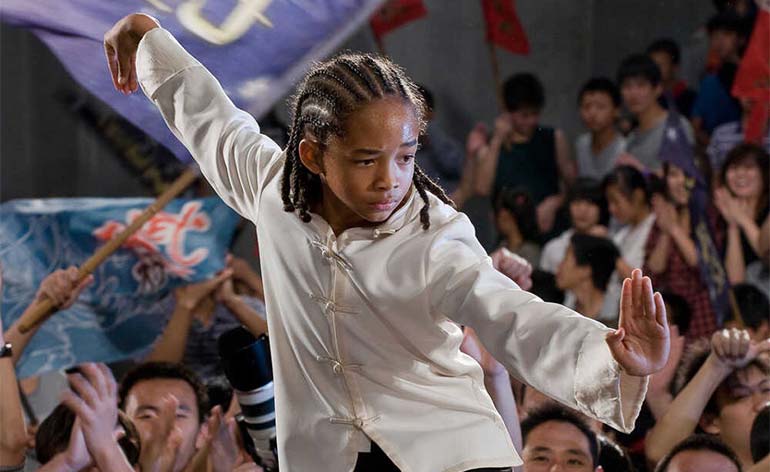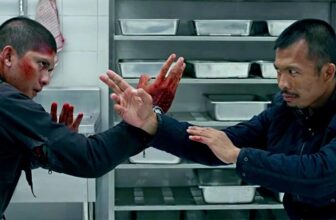
Empathy is a basic quality that affects children’s relationships, emotional intelligence, and social skills by influencing how they view and engage with the world
Although kids’ martial arts are typically associated with physical training and self-defense methods, it’s important to remember that these disciplines are much more than just sports.
Kids martial arts contain priceless lessons that foster in young practitioners empathy, compassion, and emotional awareness.
This article will explore the surprising relationship between teaching children martial arts and developing empathy, emphasizing how both activities complement one another in the development of well-rounded people.
Understanding Empathy and Its Relevance in Children
Understanding empathy is pivotal in comprehending children’s social and emotional development. Empathy, or the capacity to comprehend and share the thoughts, feelings, and viewpoints of others, is important for developing healthy relationships and emotional intelligence in children.
This knowledge becomes important in the context of children’s martial arts because it forms the basis for teaching virtues like cooperation, respect, and compassion.
As kids advance in their martial arts training, they not only hone their physical skills but also come to understand the value of empathy in relationships with peers, instructors, and the larger community.
Kids martial arts foster empathy development, which sets the stage for the development of well-rounded people who can handle life’s obstacles with compassion and understanding.
Kids Martial Arts: Beyond Self-Defense and Physical Fitness
Kids martial arts programs surpass the widespread belief that they are limited to self-defense and physical health. These elements are crucial, but they only make up a small portion of the overall lessons that kids can learn from martial arts.
These courses are intended to impart important life skills, with a focus on character development, mental toughness, and discipline.
Kids participate in an organized setting that fosters tenacity, self-control, and respect in addition to learning punches and kicks.
Children’s martial arts provide a platform for developing vital qualities like self-assurance, leadership, and moral principles, giving young practitioners a well-rounded foundation that goes far beyond physical skill.
The Connection Between Kids Martial Arts and Empathy
Young people who practice martial arts have a significant bond with empathy that extends beyond their physical training.
Training in martial arts imparts virtues like self-control, discipline, and respect—all of which are essential for helping kids develop empathy.
Kids acquire the philosophical lessons inherent in martial arts, as well as structured training and cooperative exercises, that help them to comprehend and respect the sentiments and viewpoints of others.
Children who practice martial arts and empathy can enhance their entire character development by gaining not only physical skills but also emotional intelligence, compassion, and a greater understanding of their impact on others.
Techniques Embedded in Kids Martial Arts for Empathy Building
In kids martial arts, a variety of techniques are incorporated into the training program to help young practitioners develop empathy in particular.
These methods go beyond simple physical exercises and include activities designed to develop in kids a sense of empathy, cooperation, and understanding. Children are taught the value of cooperation, respect for others, and handling conflict through role-playing games, pair drills, and instructor-led conversations.
Additionally, interactive exercises, mindfulness exercises, and storytelling are used to improve emotional awareness and foster empathy for others.
These methods, which are integrated into children’s martial arts instruction, actively foster empathy, compassion, and interpersonal understanding in addition to helping kids learn how to defend themselves.
Empathy’s Real-Life Impact on Martial Arts Training
Kids who learn martial arts can develop empathy, which has a profoundly positive impact on their social relationships and personal growth.
When kids participate in martial arts programs, the empathy that is taught to them outside of the dojo has a good impact on their daily lives.
Parents, teachers, and kids themselves frequently attest to considerable gains in their children’s communication, social skills, and capacity for handling conflict. Empathetic children tend to interact with others with more understanding, compassion, and patience, which promotes healthier connections with peers and family members.
This practical application highlights how martial arts instruction not only develops physical skills but also greatly aids in the development of well-rounded, compassionate people who can deal with a variety of social circumstances.
Empowerment Outside the Dojo: Strengthening Compassion in Everyday Situations
Empowerment outside the dojo refers to the application of empathy developed through kids martial arts in a variety of contexts beyond official instruction.
Important roles that parents, teachers, and caregivers play in helping people learn empathy outside of the martial arts context are in these areas.
They can inspire kids to use the empathy, respect, and conflict resolution skills they’ve acquired in the classroom to their relationships at home, at school, and in their communities.
Children can absorb these principles by incorporating empathy-focused activities, conversations, and problem-solving exercises into their daily routines. This will improve their social and emotional intelligence.
Kids may handle a variety of social situations in their daily lives with compassion and understanding when they apply their empathy from the dojo, which has a good effect on their relationships and personal development.
Addressing Concerns and Misconceptions
Addressing concerns and misconceptions surrounding kids martial arts includes dispelling urban legends and clearing up misconceptions that might hinder their acceptance or effectiveness.
A common misperception about martial arts training is that it encourages anger or violence in kids, even though its true focus is on self-control, discipline, and respect.
Another myth might be doubting the value of empathy training in martial arts, ignoring its shown ability to develop emotional intelligence and social skills in beginning practitioners.
Through education, addressing these concerns, showcasing the fundamental principles and techniques of kids martial arts, and offering proof of the discipline’s beneficial effects on kids’ character development, it is possible to dispel myths and promote a more accurate understanding of the discipline.
Conclusion
In conclusion, combining kids martial arts instruction with empathy education is a powerful stimulant for developing rounded individuals.
Training in martial arts imparts values that are vital for children’s growth, such as respect, compassion, and emotional intelligence, much beyond only physical skills.
Through the incorporation of empathy-building practices inside the martial arts framework, young practitioners develop a greater awareness of others’ emotions and viewpoints, in addition to developing their self-defense skills.
Kids martial arts and empathy work together to empower kids to handle life’s challenges with fortitude, compassion, and a deep understanding.
This creates a generation of people who are not only physically strong but also possess the empathy required to positively influence their communities and beyond.






